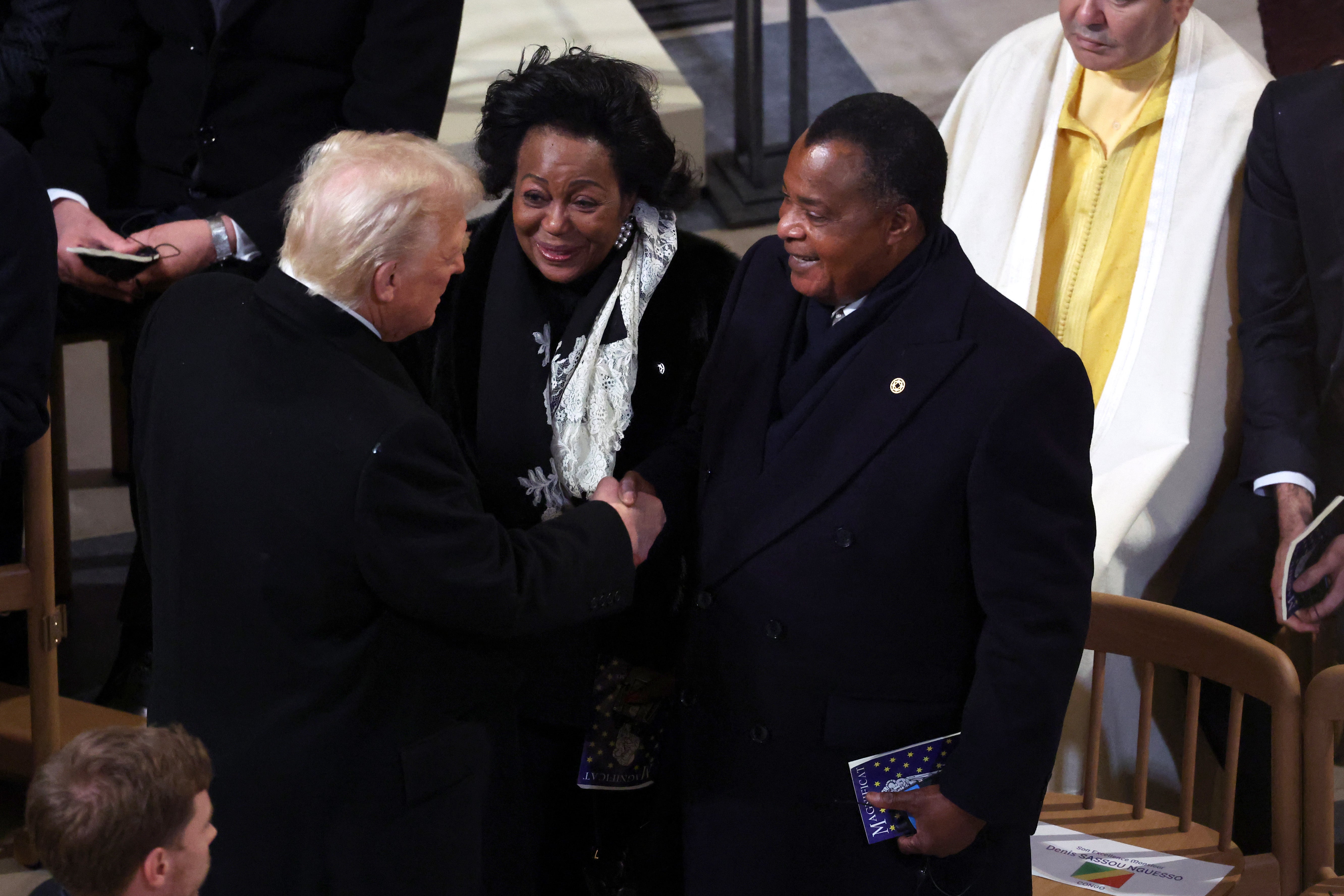Among the 19 countries President Donald Trump has issued a travel ban on is the Republic of the Congo, which, until now, the president has not singled out as a particular issue.
Trump has accused “the Congo” – the informal name for the Democratic Republic of the Congo, a much larger country located next to the Republic of the Congo – of releasing prisoners into the United States.
“Many, many people come from the Congo,” Trump said during a meeting with Italian Prime Minister Giorgia Meloni last month. “I don’t know what that is, but they came from the Congo.”
The DRC has firmly denied those allegations.
Yet, the White House placed the Republic of the Congo, not the Democratic Republic of the Congo, on its restrictive travel ban list – saying Republic of the Congo visa holders overstay by a rate, on average, of 29 percent.
One reason the DRC may have been excluded from the travel ban is because the country is trying to work out a mineral deal with the U.S. That deal could be finalized by the end of the month, according to the Financial Times.
The Independent has asked the White House for further comment.
Reviving the policy from his first administration, Trump announced full restrictions, for both immigrants and nonimmigrants, on Afghanistan, Myanmar, Chad, the Republic of the Congo, Equatorial Guinea, Eritrea, Haiti, Iran, Libya, Somalia, Sudan, and Yemen.
Partial restrictions are also in place for Burundi, Cuba, Laos, Sierra Leone, Togo, Turkmenistan, and Venezuela.
The Republic of the Congo has not publicly commented on the travel ban as of the publication of this story. But, the African Union Commission, the executive arm of the African Union, encouraged the U.S. to reconsider the full or partial ban on nine of it’s countries.

The commission said it “remains concerned about the potential negative impact of such measures on people-to-people ties, educational exchange, commercial engagement, and the broader diplomatic relations that have been carefully nurtured over decades.”
“While recognising the sovereign right of all nations to protect their borders and ensure the security of their citizens, the African Union Commission respectfully appeals to the United States to exercise this right in a manner that is balanced, evidence-based, and reflective of the long-standing partnership between the United States and Africa,” the commission said in a statement.
So far, Venezuela has been the first country to verbally challenge Trump’s travel ban policy.
Diosdado Cabello, the minister of the interior, justice, and peace, hit back at Trump shortly after the partial travel ban was announced, saying people should not travel to the U.S. anyway.
“Being in the United States is a great risk for anyone, not just for Venezuelans,” Cabello said, according to translation.
Cabello said those who govern the U.S. are “fascist” and “persecute our people… for no reason.”
Dahir Hassan Abdi, the Somali ambassador to the U.S., urged the U.S. to engage in a conversation with the Somali government instead.
“Somalia values its longstanding relationship with the United States and stands ready to engage in dialogue to address the concerns raised,” Hassan said in a statement.
Since the president began implementing strict immigration policies, other countries have also issued warnings about traveling to the U.S, including Germany, the U.K., Canada, France, Finland, and Denmark.
Why Trump’s travel ban won’t work – and doesn’t deserve to
Full list of the 19 countries hit by Trump’s newest travel ban
Donald Trump revives travel ban and restricts 19 countries: ‘We don’t want them’
Musk goes scorched earth and says he is the reason why Trump won in 2024
College grad with no security experience now leading DHS terror prevention team
State Department funnels $250M from refugee aid into Trump’s self-deportation scheme







